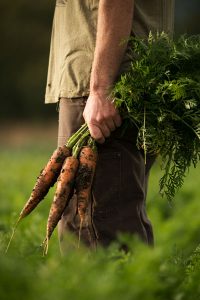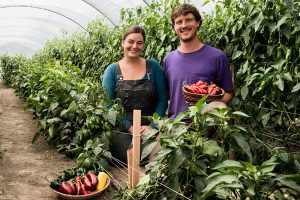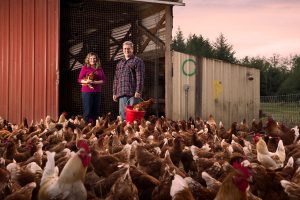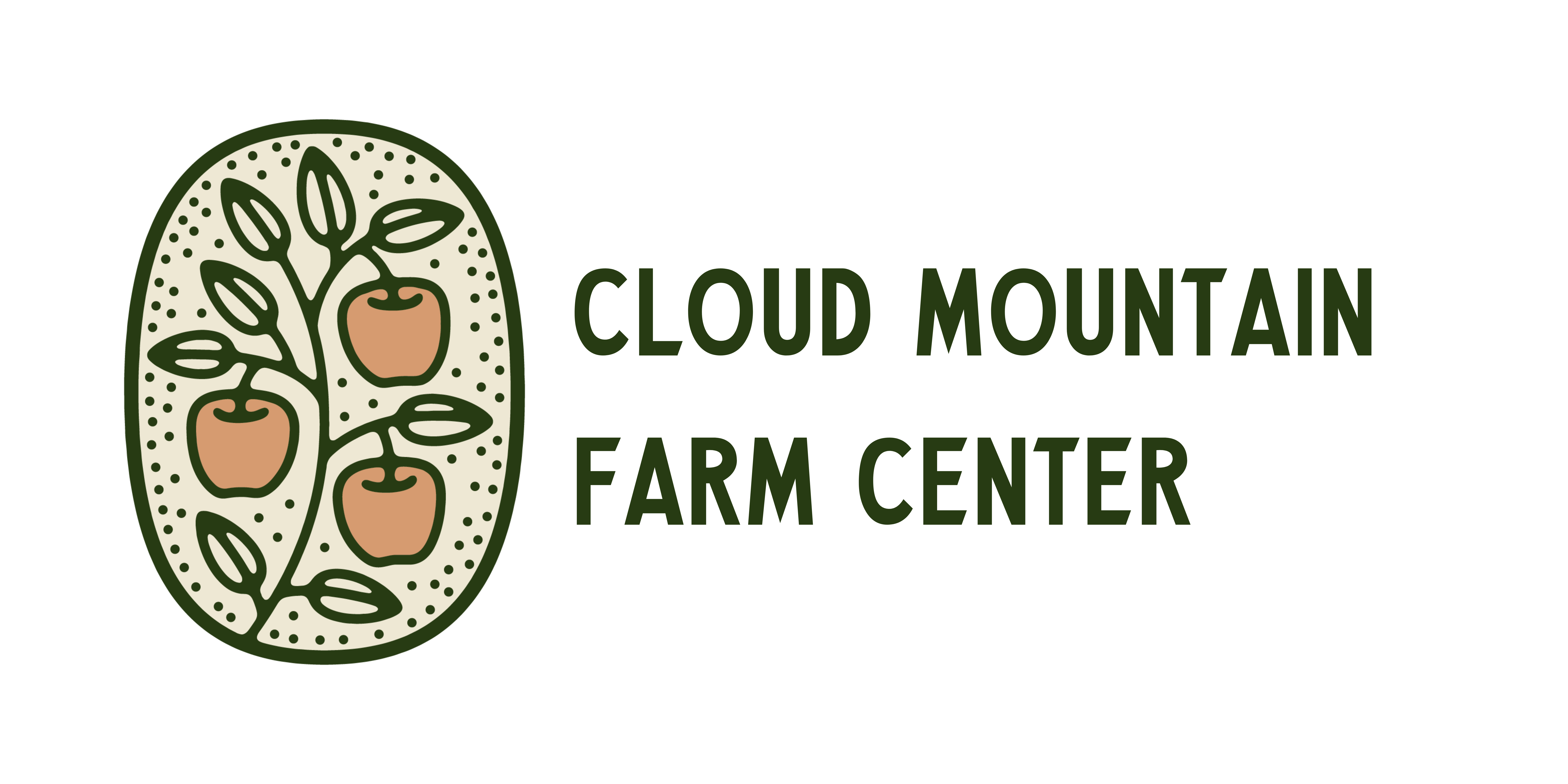
Photo credit Diane Padys Photography
One of the many programs that help train new farmers in our community is Food to Bank On, part of Sustainable Connections’ Food and Farming Program.
Food to Bank On is a 3-year business training program for aspiring farmers. Farmers learn business skills through a workshop series, mentorship from local farmers, and the market support of Sustainable Connections membership.For 15 years, Food to Bank On has had great success in training a new generation of farmers while reimbursing them for over $100,000 of donations to local food banks and hunger relief agencies. We’re feeding the folks who need it most while supporting new farmers.
This year we’re combining our efforts with those of Cloud Mountain Farm Center. In addition to the farmer business training program, we’re combining with Cloud Mountain Farm Center’s internship and incubator programs for new farmers. Through this partnership, we aim to offer a seamless farmer training and education program so that farmers of all skill and experience levels can access the resources they need to be successful.
The CMFC internship allows aspiring farmers to learn more about how to be successful through an 8-month educational series, complete with hands-on learning. The incubator program provides access to land, equipment, infrastructure, and markets for new farmers who have the skills and just need some support to kick-start their farm business. Combined with Food to Bank On, these programs provide a clear path from having an interest in growing food, all the way to becoming a successful farmer and business owner. With the average age of farmers approaching 60, these types of programs are crucial to ensuring that we still have food to eat for our children and ourselves.
Some Food to Bank On Stories

Slanted Sun Farm. Photo credit Diane Padys Photography
Slanted Sun Farm: A good example of the collaboration between SC and CMFC, Slanted Sun Farm graduated FTBO in 2018 and is still farming at the incubator site. Through FTBO they were able to access the resources they needed to test out a value added product, basque-style dried pepper flakes. Since then they’ve expanded to include additional dried products, bought a commercial dehydrator, and are continuing to refine which crops they sell based on tools and resources we’ve provided. They continue to have access to affordable leased land with infrastructure and equipment that makes it possible to farm on their scale.
Misty Meadows Farm: Melissa Moeller has gone from a Food to Bank On participant to a mentor in the

Misty Meadows Farm. Photo credit Diane Padys Photography
program. Her egg production has grown steadily over the years and now she has several regional wholesale contracts with major retailers and restaurants. Each year she shares her knowledge and experience with new farmers in the program by presenting in workshops as well as offering 1:1 mentorship to as many as three farmers each year. By offering 8 hours of her time to each of these farmers, she’s able to pass along very specific information that new farmers need to be successful. Melissa also sells her eggs on the Puget Sound Food Hub, a collaborative effort involving Cloud Mountain Farm Center, that makes it easier for farmers to get their products into local grocery stores and restaurants.
Twin Cedars Farm: Kevin and Briana Buck are in their third and final year of the Food to Bank On program, and have been expanding each year. After starting on land at the Cloud Mountain incubator site, they bought property nearby and have been working to improve it since. Specializing in chicken and duck eggs as well as several varieties of softneck and hardneck garlic, they’ve expanded production to meet market demands. They sell at the Bellingham Farmers Market as well as to restaurants including The Willows and Ciao Thyme. By connecting with mentors through the program, they have been able to increase efficiency and keep costs down, ensuring the success of their business.
Food to Bank On is just one program that is made stronger by the merger of Cloud Mountain Farm Center with Sustainable Connections’ Food and Farming Program.


I planted a seabuckthorn tree from your farm about 8 years ago. It has done very well. Presently, it is however taking over the section of yard where it is located. What do you suggest in terms of control?
Would you have someone that I could refer to who could come by to give a suggestion?
Would someone be interested in the shoots?
Would your farm have use for them?
Thanks
Gene
Yes, they do run- probably their biggest fault. We mow around ours to control. We propagate ours from cuttings rather than shoots.